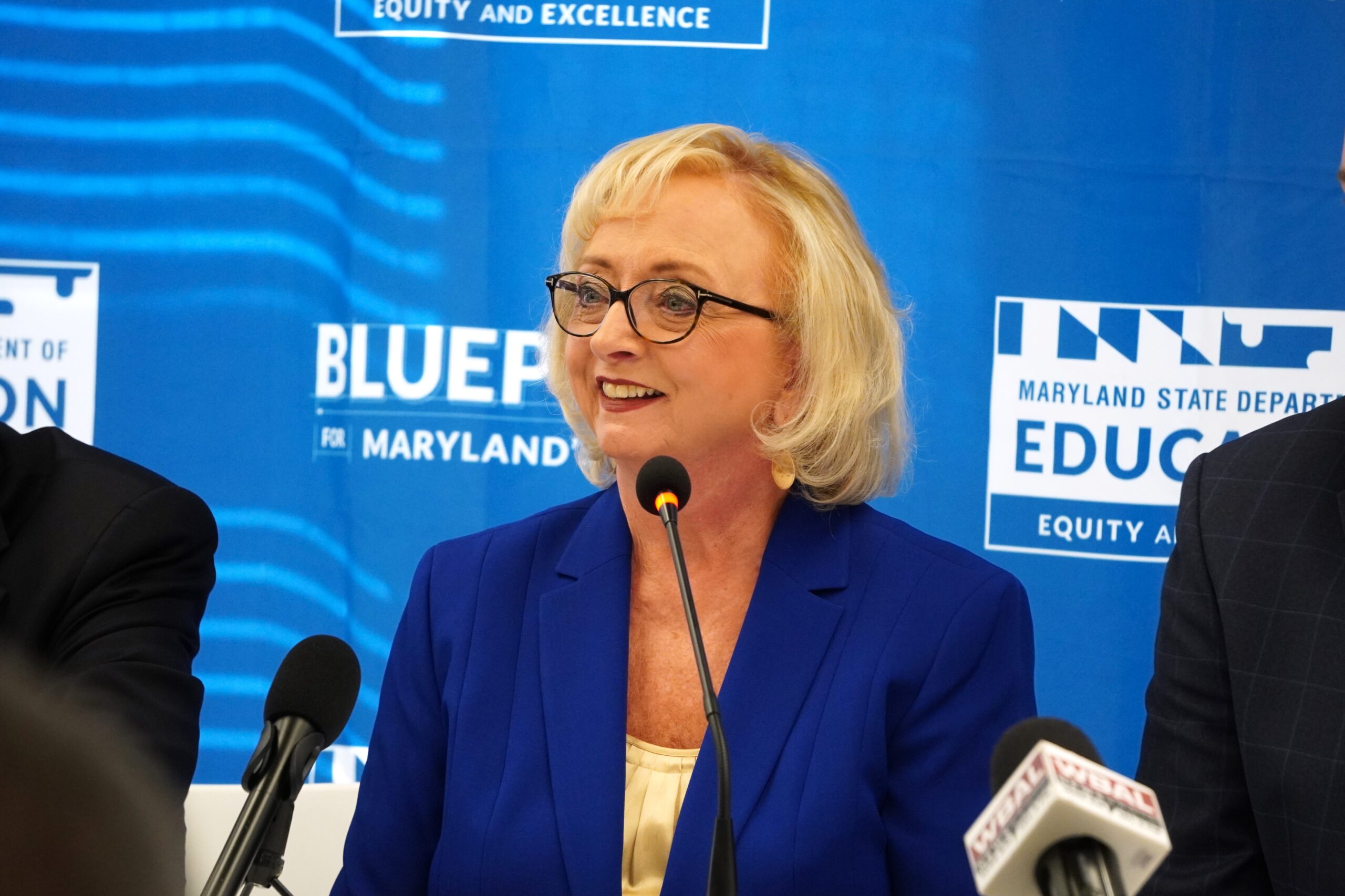Lawmakers press college savings plan leaders for answers as Speaker Jones watches emotional hearing

Maryland House Speaker Adrienne Jones (D-Baltimore County) kept watch Thursday as delegates from two standing committees grilled the leaders of the state’s college savings program, which has struggled to make payments to some families since fall because of an interest rate calculation error.
For months, parents have complained that they have been unable to tap interest they have earned in Maryland’s Prepaid College Trust. Plan leaders say they froze the interest portion of many families’ accounts because of an accounting glitch that surfaced when they switched from one outside vendor to another.
Although they can access their principal, many parents have complained of being unable to make tuition payments as bills arrive. Frustrated families have banded together through an online forum and have threatened to sue the plan.
“Obviously this committee, this legislature, this speaker — I think it speaks volumes that our speaker is here — is gravely concerned,” said Del. Ben Barnes (D-Prince George’s), chair of the House Appropriations Committee.
The briefing was also attended by members of the Ways and Means Committee, which shares jurisdiction over the agency.
Lawmakers peppered Maryland 529 leaders with questions about the plan’s maintenance and gave specific examples from constituents’ financial statements as they probed to find out the scope of the issue and how it is being addressed by the independent agency.
Legislation to reform the board is promised this legislative session.
Barnes noted that issues with the 529 board go back years, including leadership turmoil, excessive payouts to some families, and an issue with troves of unopened mail, including uncashed checks.
Anthony Savia, who joined Maryland 529 as director over the summer, said many of the long-standing issues had been addressed and he promised better communication about the interest rate miscalculation going forward. The office recently hired a crisis communications firm on a $50,000 contract.
Maryland offers two 529 college savings programs (named for the section of IRS code that makes them possible). The Maryland Prepaid College Trust allows parents to lock in tuition rates for in-state schools by purchasing semester credits when children are young.
The College Investment Plan is administered by an outside money manager and functions similar to a 401(k). The investment plan is unaffected by the software glitch, officials insist.
At issue is the value of accounts within the Maryland Prepaid College Trust. The 529 board suspended interest payments on those accounts back in August, and the full scope of the problem remains unclear.
The agency says at least 419 of 480 accounts that were flagged for concern have been reviewed. However, the agency says that only some account holders were directly notified about the interest rate calculation error by email, and the accounts slated for review were self-referred.
Lawmakers expressed concern that, as long-term government-backed savings plans, some account holders may not check in regularly and could remain unaware of the issue.
Savia said Thursday that the number of semester credits families have accumulated in the trust plan are unaffected. But that leaves families trying cash out those credits for out-of-state or private schools in the lurch. And the purported value of those credits listed on an annual report in 2021 has now changed.
Some families scrambled and made other financial arrangements to cover their contributions for fall tuition. Now, they’re facing the same scramble for another semester.
Thursday’s hearing was also unusual in that it was punctuated by applause as families suffering financial harm from the glitch testified.
Wendy Hall said she was elated when her son was accepted to Cornell University. But when her family was unable to cash out the prepaid tuition credits to help with his tuition, they had to take other extraordinary measures, including refinancing their home at a much higher interest rate.
That took care of the fall semester. Now the family is facing down a bill for the spring.
“We can’t keep refinancing our house,” Hall told the committee.
Brian Savoie, a Montgomery County resident who tried to access a prepaid trust plan for his son’s tuition at Purdue, said the interest miscalculation led to a $28,000 decrease in the value listed for his account.
During Thursday’s hearing, lawmakers expressed particular concern that families who invested in the plans should be “made whole” and wanted to understand how much money that might mean.
Board Chair Peter Tsirigotis and Savia said the board has been working to correct the calculation errors both to ensure that families receive what’s fully due to them and that no one receives more than they should. A universal total is not known.
At one point, Barnes pressed an issue raised by Del. Kirill Reznik (D-Montgomery) – that the board needs to establish clear rules for how and when families will be reimbursed for additional costs they’ve incurred.
“Can you give these families a timeline as to when you are going to do that? Or are you just telling me there’s no timeline at all?” Barnes asked. “…We would like it if you can get us a timeline. Sooner rather than later.”
When Tsirigotis responded that it was an issue the board would likely discuss at its next meeting, scheduled for the end of February, Barnes appeared indignant.
“Are you unable to meet before next month?” Barnes said. “…Maybe we should get back to the board that maybe you should have a board meeting in the interim.”
Tsirigotis agreed.
Barnes told the Maryland 529 leaders he wanted answers to the series of questions posed by the committee by next week.
During a presentation Thursday, legislative analysts said the $1.1 billion trust is over funded, at 140%, and state law allows disbursements to contract holders when the surplus reaches that level.
Comptroller Brooke Lierman (D), who was in the hearing room for an agency briefing and is a member of the 529 board because of her position as state comptroller, offered a brief statement to the room.
“I’m ready to partner with you all … to make sure that we are making every parent whole and ensuring that we make this program one that works for every student and parent in the state of Maryland,” Lierman said, getting an approving response from the crowd.
“We’re ready to partner right back,” Barnes said.




 Creative Commons Attribution
Creative Commons Attribution